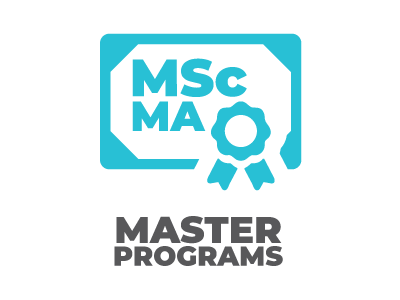DESTINATION:
HUNGARY

Hungary is a country known for its charming urban centers, picturesque landscapes, and vibrant culture. It has become a popular destination for international students seeking to pursue their studies. With over 25 universities and numerous colleges offering comprehensive bachelor's degree programs, Hungary provides a wide range of educational opportunities.
The rich history of Hungarian education dates back more than 600 years to the establishment of the country's first university. In Hungary, there are various universities and colleges, both public and private, recognized by the state, with over ten institutions located in Budapest alone.
Many of these institutions offer graduate and postgraduate programs, including B.Sc., M.Sc., Ph.D., and DLA degrees, taught in English. This diversity of programs and institutions allows international students to find suitable options for their academic pursuits.
One of the appealing aspects of studying in Hungary is the relatively lower cost of education and living compared to other countries in the European Union and North America. This affordability factor makes Hungary an attractive choice for students seeking quality education without incurring excessive financial burden. Overall, Hungary's historic heritage, wide range of educational institutions, and cost advantages make it an appealing destination for international students looking to further their education and experience a unique cultural environment.


Students who hold a residence permit for the purpose of study in Hungary have the opportunity to engage in part-time employment. During term-time, they are permitted to work for up to 24 hours per week. Additionally, outside of term time, students can work for a maximum of 90 days or 66 working days per year.
It is important to note that in this scenario, obtaining a separate work permit or a residence permit for employment is not required. However, it is essential to adhere to certain regulations regarding age and working hours.
The minimum age for work placement in Hungary is 15 years old. Students who are under 18 years old must not exceed 8 working hours per day and are restricted to a maximum of 40 hours per week. Furthermore, a 30-minute break is granted to students who work for a duration of 4.5 hours.
These regulations aim to ensure that students can balance their work commitments with their academic responsibilities, promoting a healthy and productive environment for both work and study.
Here are ten reasons why studying in HUNGARY is unique and attractive:

Mericler collaborates with various universities in Hungary to offer foundation programs designed for international students who do not meet the direct entry requirements for Hungarian universities. These programs provide an opportunity for students to continue their studies at the bachelor level.
The duration of a foundation course in Hungary is typically one year. During this time, students engage in language courses, either in English or Hungarian, along with academic courses related to their chosen major.
The specific combination of language and academic courses may vary based on the students' eligibility and status. It is essential for students to successfully pass the foundation program with acceptable grades in order to progress to the first year of their bachelor's degree.
Foundation programs are available across a range of majors, depending on the university and the availability of desired programs. Both science and non-science majors are offered in Hungary. The academic year for foundation programs in Hungary commences in September and extends until June, with extended breaks during the months of July and August. Admission requirements for foundation programs in Hungary differ among universities and majors. However, there are common documents typically required by most universities, including high school transcripts and proof of English proficiency through an English entrance exam or the IELTS. Most universities in Hungary require a minimum overall score of 5 to 6 on the English proficiency test.
Required Documents for studying foundation in Hungary are:

Many international students are attracted to pursuing a Bachelor's degree in Hungary due to the country's renowned universities and specific programs, such as Medicine, that are globally recognized for their excellence.
The duration of Bachelor's degree programs in Hungary varies depending on the major, typically lasting four years, but extending up to five or six years for subjects like Engineering.
The academic year in Hungary begins in September, so early application is recommended, with the process starting as early as March. Since most universities in Hungary are public and admission is competitive, it is advisable for students to apply as soon as possible. The academic year typically concludes in June, with extended breaks during July and August.
In recent years, many Hungarian universities have introduced multiple intake periods for bachelor's programs, in addition to the traditional September intake, allowing more international students to pursue their studies in Hungary.
A wide range of majors and specializations are available for Bachelor's degrees in Hungary. Students can choose to pursue a Bachelor of Arts or Sciences in their desired field of study. The specific academic requirements may vary across universities, depending on the chosen major.
However, the key required documents for applying to a Bachelor Degree program at a Hungarian university are:
Certain universities in Hungary have a requirement for students to complete an entrance exam as part of the admissions process. These exams typically evaluate the student's proficiency in English, as well as their critical and numerical reasoning abilities through a Mathematics exam. Additionally, some universities may conduct an online interview with the admissions team.
The entrance exam can be taken online, and in some cases, students have the option to take the exam upon their arrival in Hungary, before starting their studies. Mericler, in collaboration with numerous Hungarian universities, has the authority to administer the online exams for students at our office premises.

Hungary provides a diverse selection of postgraduate programs for international students. These programs encompass both master's and PhD degrees and are offered by renowned Hungarian universities.
Hungary offers a broad range of specialization options and majors for master's degrees, covering various fields of study, including sciences and non-sciences.
The duration of a master's degree program in Hungary varies from 1 to 2 years, depending on the chosen major and program. However, it is a requirement to earn a minimum of 30 credit hours according to the European Credit Transfer System (ECTS). For one-year programs, completion of 60 credit hours is necessary, while two-year programs require the attainment of 120 credit hours. In sciences majors, the completion of a thesis is typically mandatory for degree completion.
The academic year for master's programs in Hungary typically begins in September and concludes in July, spanning two semesters.
To apply for a master's degree in Hungary, it is advisable to submit the application at least 3 months before the course's start date in order to secure the university acceptance letter and visa.
The required documents for master's degree applications generally include university transcripts and certificates, a copy of the passport, recommendation letters, a personal statement, IELTS Academic test scores, and a resume/CV.
Hungary offers numerous opportunities for students interested in pursuing doctoral studies. Prior to commencing the PhD program, the university must approve the research dissertation topic, which should be relevant to the university's areas of interest. Before starting the PhD studies, an initial discussion between the student and the supervising professor is necessary to agree on the research topic. Some PhD programs, such as Medicine and Engineering, may require practical studies in addition to theoretical components. Therefore, many PhD programs in Hungary mandate a minimum of 3-5 years of practical experience related to the research topic and field.
The classroom format for PhD programs in Hungary is flexible, typically involving regular meetings between students and professors to discuss progress and receive feedback on research. Pursuing a PhD is a demanding endeavor that involves continuous research, practical application, and a significant time commitment. This applies to PhD programs worldwide, not just in Hungary.
Unlike other programs, the start date of a PhD program in Hungary is usually arranged between the student and the professor based on mutual agreement.
The academic requirements for PhD programs in Hungary vary depending on the specific research topic or field.
The key documents required for applying to a PhD program in Hungary typically include university transcripts and certificates, a copy of the passport, recommendation letters, a personal statement, IELTS Academic test scores, a resume/CV, and a research proposal.


Mericler is a Canadian educational umbrella under which a range of services is delivered worldwide by experts and professionals who have accumulated years of international experience in their specialty fields. Starting from Toronto, Canada...
20 Carlton St. (Suite
no. 121), Toronto,
Ontario, M5B 2H5,
Canada
+1 647 933 9098
+1 647 627 3938
+1 647 933 9097
info@mericler.net
Esentepe, Yazarlar Sk.
No 21, 34381
Şişli/İstanbul
+90 212 27 555 12/3
+90 544 294 46 38/9
info@mericler.net
8315 Spectrum Irvine
California 92618
+1 949 771 7214
+1 949 771 7214
info@mericler.net
Focus Education &
Immigration B-32
Supath-2 Opp. Hotel
Fairfield, Nr. Old
Wadaj Ashram Road,
Ahmedabad 380 013,
Gujarat, India
+91 97235 96061
+91 97235 96061
india@mericler.net
48 Sakponba road,
opposite First bank,
IK pharmacy building,
2nd floor, Benin city,
Edo state, Nigeria
+234 905 599 7001
+234 905 599 7001
nigeria@mericler.net